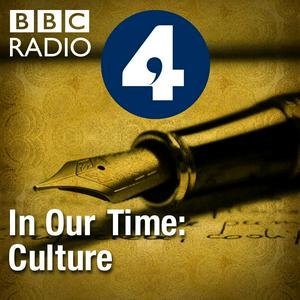In 1897, Gustav Klimt led a group of radical artists to break free from the cultural establishment of Vienna and found a movement that became known as the Vienna Secession.
In the vibrant atmosphere of coffee houses, Freudian psychoanalysis and the music of Wagner and Mahler, the Secession sought to bring together fine art and music with applied arts such as architecture and design.
The movement was characterized by Klimt’s stylised paintings, richly decorated with gold leaf, and the art nouveau buildings that began to appear in the city, most notably the Secession Building, which housed influential exhibitions of avant-garde art and was a prototype of the modern art gallery. The Secessionists themselves were pioneers in their philosophy and way of life, aiming to immerse audiences in unified artistic experiences that brought together visual arts, design, and architecture.
With:
Mark Berry, Professor of Music and Intellectual History at Royal Holloway, University of London
Leslie Topp, Professor Emerita in History of Architecture at Birkbeck, University of London
And
Diane Silverthorne, art historian and 'Vienna 1900' scholar
Producer: Eliane Glaser
Reading list:
Mark Berry, Arnold Schoenberg: Critical Lives (Reaktion Books, 2018)
Gemma Blackshaw, Facing the Modern: The Portrait in Vienna 1900 (National Gallery Company, 2013)
Elizabeth Clegg, Art, Design and Architecture in Central Europe, 1890-1920 (Yale University Press, 2006)
Richard Cockett, Vienna: How the City of Ideas Created the Modern World (Yale University Press, 2023)
Stephen Downes, Gustav Mahler (Reaktion Books, 2025)
Peter Gay, Freud, Jews, and Other Germans: Masters and Victims in Modernist Culture (Oxford University Press, 1979)
Tag Gronberg, Vienna: City of Modernity, 1890-1914 (Peter Lang, 2007)
Allan S. Janik and Hans Veigl, Wittgenstein in Vienna: A Biographical Excursion Through the City and its History (Springer/Wien, 1998)
Jill Lloyd and Christian Witt-Dörring (eds.), Vienna 1900: Style and Identity (Hirmer Verlag, 2011)
William J. McGrath, Dionysian Art and Populist Politics in Austria (Yale University Press, 1974)
Tobias Natter and Christoph Grunenberg (eds.), Gustav Klimt: Painting, Design and Modern Life (Tate, 2008)
Carl E. Schorske, Fin-de-siècle Vienna: Politics and Culture (Vintage, 1979)
Elana Shapira, Style and Seduction: Jewish Patrons, Architecture and Design in Fin-de-Siècle Vienna (Brandeis University Press, 2016)
Diane V Silverthorne, Dan Reynolds and Megan Brandow-Faller, Die Fläche: Design and Lettering of the Vienna Secession, 1902-1911 (Letterform Archive, 2023)
Edward Timms, Karl Kraus: Apocalyptic Satirist: Culture & Catastrophe in Habsburg Vienna (Yale University Press, 1989)
Leslie Topp, Architecture and Truth in Fin-de-Siècle Vienna (Cambridge University Press, 2004)
Peter Vergo, Art in Vienna, 1898-1918: Klimt, Kokoschka, Schiele and Their Contemporaries (4th ed., Phaidon, 2015)
Hans-Peter Wipplinger (ed.), Vienna 1900: Birth of Modernism (Walther & Franz König, 2019)
Hans-Peter Wipplinger (ed.), Masterpieces from the Leopold Museum (Walther & Franz König)
Stefan Zweig, The World of Yesterday: An Autobiography (University of Nebraska Press, 1964)
In Our Time is a BBC Studios Audio Production
Spanning history, religion, culture, science and philosophy, In Our Time from BBC Radio 4 is essential listening for the intellectually curious. In each episode, host Melvyn Bragg and expert guests explore the characters, events and discoveries that have shaped our world.


